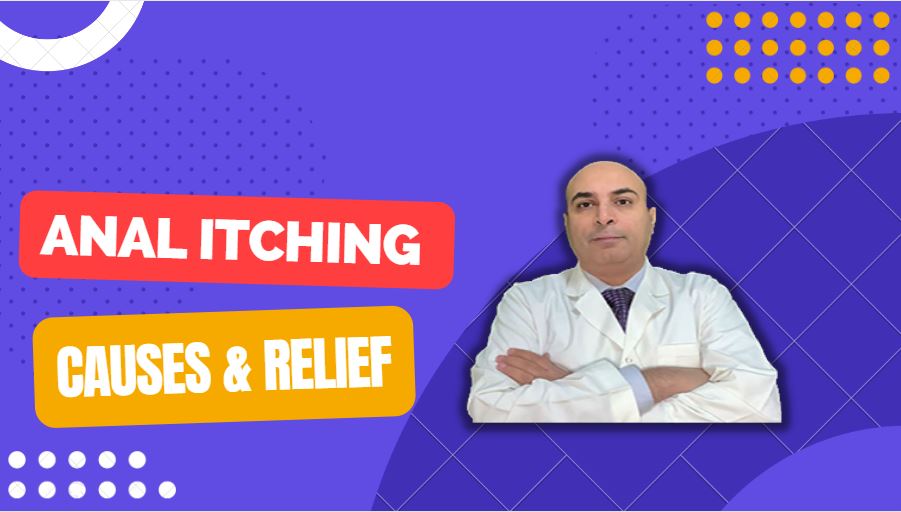I. Introduction
Anal itching, also known as pruritus ani, is a common
condition that affects both men and women. It is characterized by intense and
persistent itching or burning sensation in the anal area. The condition can be
both frustrating and embarrassing and can have a significant impact on a
person's quality of life. In this article, we will explore the causes, symptoms,
and treatment options for anal itching, to help those who are dealing with this
condition find relief.
II. Causes of Anal Itching (pruritus ani)
Poor hygiene:
Not cleaning
the anal area properly after bowel movements can lead to the accumulation of
fecal matter, which can lead to irritation and itching.
Skin irritation:
Certain
soaps, lotions, and other products that come in contact with the anus can
irritate, leading to itching.
Medical conditions:
Anal
itching can be a symptom of certain medical conditions, such as hemorrhoids,
inflammatory bowel disease, and certain skin conditions like eczema.
Diet:
Eating acidic or
spicy foods can irritate the anus and cause itching.
Drinks:
· Alcohol:
Consuming large amounts of alcohol can cause
dehydration, leading to dry skin and itching in the anal area. Alcohol can also
irritate the anal mucosa and cause inflammation.
· Caffeine:
Caffeine is a stimulant that can cause the
muscles in the anus to contract, which can lead to itching and discomfort.
· Carbonated drinks:
Carbonated drinks can cause gas and
bloating, which can put pressure on the anus and cause itching.
· Spicy drinks:
Spicy drinks can cause irritation and
inflammation in the anus, leading to itching.
It is important to note that these drinks may not necessarily
be the cause of anal itching for everyone and it's always best to seek medical
advice if the symptoms persist. Also, it could be an individual sensitivity or
allergies to certain ingredients in the drinks.
Parasites:
Certain
parasites, such as pinworms, can infect the anal area and cause itching.
Allergies or sensitivities:
Allergic reactions to certain products or materials, such as toilet paper, can
cause itching in the anal area.
Medications:
Certain
medications, such as antibiotics, can cause itching as a side effect.
Others:
Anal fissures,
chronic constipation, and stress may also cause anal itching.
III. Symptoms of Anal Itching
·
Intense itching or burning
sensation in the anal area
·
Redness and soreness in the
anal area
·
Irritation and discomfort
in the anus
·
Persistent need to scratch
the anal area
·
Pain or discomfort during
bowel movements
·
Slight bleeding from the
anus due to scratching
·
Swelling or lumps around
the anus (if caused by hemorrhoids)
·
Foul-smelling discharge (if
caused by infection)
It is important to note that some of these symptoms may also
be indicative of other medical conditions, so it is important to see a
healthcare provider for a proper diagnosis if you are experiencing anal
itching.
Should I be worried about an itchy anus?
Itching in the anus area can be quite uncomfortable and
worrying, however, it is usually nothing to be overly concerned about. It could
be caused by anything from a simple case of dry skin or a fungal infection such
as thrush. If you have recently changed your diet, been using new cleaning
products, or started using a new laundry detergent, these could all contribute
to an itchy bottom. If the itching persists for more than a few days or is
accompanied by other symptoms such as pain, discharge or swelling then you
should seek medical advice. Keeping the area clean and dry, wearing
loose-fitting clothing, and sitting on a soft cushion may help to reduce the
discomfort. If you are worried about an itchy anus then make sure to speak to
your doctor who will be able to provide advice on how best to treat your
condition.
IV. Diagnosis of anal itching
The diagnosis of anal itching usually begins with a physical
examination, during which the healthcare provider will inspect the anus and
surrounding area for signs of redness, irritation, or other abnormalities. The
healthcare provider may also perform a digital rectal examination, during which
they will gently insert a gloved finger into the rectum to check for any
abnormalities or masses.
If necessary, the healthcare provider may also recommend
additional tests such as a stool sample, blood test, or skin scraping to check
for infection, inflammation, or other underlying conditions.
Based on the examination and any additional test results,
the healthcare provider will be able to make a diagnosis and recommend a
treatment plan.
It is important to see a healthcare provider if you are
experiencing persistent or severe anal itching, as it can be a symptom of
underlying conditions that require medical attention.
V. Treatment options
Treatment options for anal itching will depend on the
underlying cause of the symptoms. Some common treatment options include:
Over-the-counter creams and ointments:
These can provide relief from itching and discomfort and may contain
ingredients such as hydrocortisone, calamine, or zinc oxide.
Medications:
Antihistamines
and topical anesthetics can help to relieve itching and burning. In some cases,
your healthcare provider may also prescribe oral medications such as
antibiotics if an infection is suspected.
Lifestyle changes:
Maintaining good hygiene, avoiding irritating soaps or toilet paper, drinking
plenty of water, and avoiding foods that cause gas and bloating can help to
alleviate symptoms.
Avoiding triggering factors:
If you notice that certain foods, drinks, or activities tend to worsen
your symptoms, try to avoid them as much as possible.
Sitz baths:
Soaking the
anal area in warm water can help to reduce inflammation and discomfort.
Surgery:
In rare cases,
surgery may be necessary to treat some medical issues causing the itching, e.g.
hemorrhoids, and anal fissures.
It's important to note that in some cases, no specific cause
can be identified and treatment may focus on symptom relief. It's also
important to work closely with your healthcare provider to determine the best
treatment plan for you and to be consistent with the treatment plan to achieve
the best results.
VI. Prevention
While some cases of anal itching may be difficult to
prevent, there are several steps you can take to reduce your risk of developing
symptoms:
Maintain good hygiene:
Clean the area of skin around the anus gently with warm water and mild soap
after each bowel movement. Avoid using harsh soaps or bubble baths, as they can
irritate the skin.
Avoid scratching:
Scratching the anus can further irritate the skin and make symptoms worse. Try
to resist the urge to scratch, and use creams or ointments to relieve itching
instead.
Wear breathable clothing:
Avoid tight clothing or underwear made from synthetic materials, as they can
trap moisture and bacteria against the skin. Wear loose-fitting cotton clothing
instead.
Avoid irritants:
Some
foods, drinks, and personal care products can irritate the skin around the
anus. Pay attention to which products cause itching, and avoid them as much as
possible.
Stay hydrated:
Drinking plenty of water can help to keep
the skin hydrated and prevent itching.
Avoid prolonged sitting:
Sitting for long periods can increase pressure on the anus and lead to itching.
Take frequent breaks to stand up and move around if you spend a lot of time
sitting.
Get regular check-ups:
Some underlying medical conditions can cause anal itching, so it's important to see a healthcare provider for regular check-ups to help identify and address any potential issues.
By following these preventative measures, you can reduce
your risk of developing anal itching and keep your anus healthy.
VII. Conclusion:
Anal itching, also
known as pruritus ani, is a common condition that can cause discomfort and
embarrassment. It can have many causes, including poor hygiene, certain foods
and drinks, and certain medical conditions. Symptoms include itching, burning,
and discomfort in the anal area.
While there are several treatment options available,
including over-the-counter creams and ointments, it is important to note that
it is best to prevent the symptoms from occurring in the first place. Some
steps you can take to prevent anal itching include maintaining good hygiene,
avoiding irritants, and wearing breathable clothing. Drinking plenty of water
and avoiding prolonged sitting can also help.
If the symptoms persist, or you are unsure of the cause, it
is important to consult with a healthcare provider for proper diagnosis and
treatment. With the right steps, you can keep your anus healthy and reduce the
discomfort caused by anal itching. I will leave you now with a subtitled video about the same topic.

